Malaysian Shipping Notice MSN 10/2021 (PART 4), Resolution MEPC.331(76) - Amendments to the AFS Convention (in force 1 January 2023)
This fourth article on Malaysian Shipping Notice MSN10/2021, is on the Fourth Resolution by the Marine Environment Protection Committee (MEPC) of the International Maritime Organisation (IMO) at its 76th Session. Resolution MEPC.331 (76) was adopted on 17 June 2021, but comes into force soon on 1 January 2023. This is why its introduction via the MSN10/2021 is so important, because as of now, there is less than two months left for compliance.
Resolution MEPC.331 (76) deals specifically with Amendments to the International Convention on the Control of Harmful Anti-Fouling System on Ship, 2001 (hereinafter referred to as AFS Convention 2001). In particular, Resolution MEPC.331 (76) makes amendments to Annexes 1 and 4 of the AFS Convention 2001, which provides for controls on cybutryne and the format of the International Anti-Fouling System Certificate (ie hereinafter referred to as the IAFS Certificate). Among the opening statements, ie preamble, to Resolution MEPC.331 (76), is a reminder to signatory states to make a timely request requests for surveys in order to facilitate the issuance of the IAFS Certificate.
Before proceeding to an examination of the Annexes, note that Cybutryne is a toxic substance that is used in anti-fouling paint which is applied to ships' hulls. It is hazardous to many diverse types of life in the marine eco-system. For news on Cybutryne, check out this BIMCO article at https://www.bimco.org/news/environment-protection/20210618-imo-bans-toxic-paint-substance-cybutryne (accessed on 10 November 2022).
Amendments to Annex 1
Two new rows have been added to Annex 1 of the AFS Convention 2001. The first addition is for Anti-Fouling Systems with Cybutryne CAS No.28159-98-0. The control measure for this under the AFS Convention 2001 is for ships not to apply or to re-apply anti-fouling systems containing this substance. This control measure is applicable to all ships, effective 1 January 2023.
The second addition to Annex 1 of the AFS Convention 2001 is for Anti-Fouling Systems with Cybutryne CAS No. 28159-98-0 on ships bearing this substance in the external coating layer of their hulls or external parts. As of 1 January 2023, the applicable control measures are as follows:
[1] Removal of the anti-fouling system; or
[2] Apply a coating that forms a barrier to this substance leaching from the underlying non-compliant anti-fouling system.
The application of these rules for the second addition to Annex 1 are a little more complex. It is applicable to 'all ships', except that there are three instances which are excepted. The first exception is fixed and floating platforms, FSUs and FPSOs that were constructed prior to 1 January 2023. These structures must have not been in dry-dock on or after 1 January 2023. The second exception for ships not engaged in international voyages. Finally, the third exception is for ships of less than 400 gross tonnage engaged in international voyages, if accepted by the coastal State(s).
The effective date for this second addition to Annex 1 are applicable to the next scheduled renewal of the anti-fouling system:
[1] After 1 January 2023; but ...
[2] Not later than 60 days following the last application to the ship of an anti-fouling system containing cyburtryne.
Amendments to Annex IV
Note that Annex IV deals with Surveys and certification requirements for anti-fouling systems. There is a new Regulation 2.3 which provides that, for ships which have an anti-fouling system described in Annex 1, if that system was applied before the date of coming into force of the new control measures on 1 January 2023, the Administration (or Regulatory Authority, ie in Malaysia, it is the Marine Department) shall issue a certificate for such ships not later than two years after the date of the coming into force of the measures. In the Malaysian context, this means 31 December 2024. Regulation 2.3 does not affect compliance requirements for Annex 1.
The 'Model Form of International Anti-Fouling System Certificate' from Appendix 1 to Annex 4 has two distinct rows/lines. One is for Organotin compounds which act as biocides, and the other is for Cybutryne. For either row/line, the following columns of information are required:
[1] Whether the compound has been applied during or after the construction of the ship;
[2] Whether the compound has been applied on the ship previously, but has been removed;
[3] Whether the compound has been applied on the ship previously, but has been covered with a sealer coat applied by ... details and date of the facility;
[4] Whether the compound has been applied previously, but is not in the external coating layer of the hull, or external parts, or surface on the ship; (Note: For this category, 'Not Applicable' is stated for Organotin, but for Cybutryne, the date of coming into force is 1 January 2023);
[5] Whether the compound was applied on the ship prior to a certain date; (Note: Once again, like number [4] above, it is clarified that this is not applicable to Oganotin, but for Cybutryne, applicability is from 1 January 2023, it must be removed or covered with a sealer coat prior to a stipulated date).
Thank you for reading IMSML Website Article 28/2022
Stay tuned for the next IMSML Website Article 29/2022:
Malaysian Shipping Notice MSN 10/2021 (PART 5), Resolution MEPC.332(76) - Amendments to the 2018 Guidelines on the method of calculation of the attained Energy Efficiency Design Index (EEDI).
Signing-off for today,
Dr Irwin Ooi Ui Joo, LL.B(Hons.); LL.M (Cardiff); Ph.D (Cardiff); CMILT
Professor of Maritime and Transport Law
Head of the Centre for Advocacy and Dispute Resolution
Faculty of Law
Universiti Teknologi MARA Shah Alam
Selangor, Malaysia
10 November 2022
Note that I am the corresponding author for the IMSML Website Articles. My official email address is: uijoo310@uitm.edu.my
